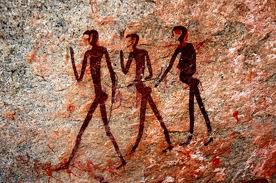Thinking Apps.
Slide 4 in Mary Meekers’s Morgan Stanley presentation entitled “Internet Trends 2010” shows the pace of mobile internet adoption. It compares iPhone/iTouch to that of AOL’s desktop, Netscape desktop and NTT docomo iMode; laying out growth by users, by quarter from launch.
iPhone’s Internet access tipped 86 million users in its 11th quarter – less than 3 years. Let’s just say the others never came close to coming close. (Check out the chart on slide 4.) Smartphone growth is hockey sticking. Motorola is starting to get it. HP bought Palm and should buy some corporate share. Blackberry is too big and too rich to fail, even though they’re getting a little paunchy around the middle. And we haven’t even started to talk about the software guys Google (after its trivestiture), Microsoft (drawing a blank) and carrier switch provider Alcatel-Lucent.
Ladies and germs, smartphones are the future of computing, commerce and community. They will dock next to monitors and keyboards, but they are the device. Think about the iPhone4’s new videoconference app. Wait for fingerprint apps, and galvanic skin response apps, sobriety apps…. Cool times, these. Marketers, put on your thinking apps (I mean caps), innovation awaits! Peace!


